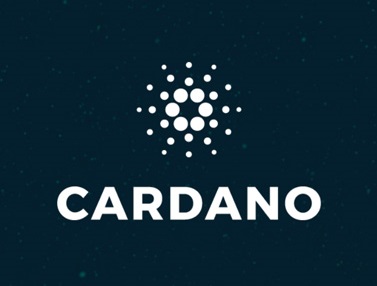Cardano is a blockchain platform and cryptocurrency that aims to provide a secure and scalable infrastructure for the development of decentralized applications (dApps) and smart contracts. Launched in 2017 by the co-founder of Ethereum, Charles Hoskinson, Cardano has quickly gained attention for its innovative approach to blockchain technology. In this post, we’ll explore what Cardano is, its key features, and its potential impact on the cryptocurrency landscape.
Overview of Cardano:
History and Background:
Cardano was founded by Input Output Hong Kong (IOHK), a technology company that specializes in blockchain and cryptocurrency development. The project was developed through rigorous academic research and peer-reviewed processes, setting it apart from many other blockchain projects.
Blockchain Architecture:
Cardano’s blockchain is built on a layered architecture, separating its network into two main layers: the Cardano Settlement Layer (CSL) and the Cardano Computation Layer (CCL). This separation allows for increased flexibility, scalability, and security.
Consensus Mechanism:
Cardano utilizes a proof-of-stake (PoS) consensus mechanism called Ouroboros. Unlike proof-of-work (PoW) systems used by Bitcoin and some other cryptocurrencies, PoS is more energy-efficient and allows users to participate in block validation based on the amount of cryptocurrency they hold.
Smart Contracts and dApps:
One of the primary goals of Cardano is to provide a platform for the development of smart contracts and decentralized applications. To achieve this, Cardano is implementing its own smart contract platform called Plutus, which aims to be more secure and flexible than existing solutions.
Interoperability:
Cardano aims to achieve interoperability with other blockchains, allowing for seamless communication and transfer of assets between different networks. This interoperability is crucial for the widespread adoption and integration of blockchain technology.
Scalability and Sustainability:
Scalability and sustainability are key focuses of Cardano’s development. Through its layered architecture and research-driven approach, Cardano aims to achieve high transaction throughput while maintaining low transaction fees. Additionally, Cardano has a treasury system that funds ongoing development and maintenance of the platform.
Governance:
Cardano employs a decentralized governance model that allows the community to participate in decision-making processes. Through a voting system, ADA holders can propose and vote on protocol upgrades, funding proposals, and other important decisions.
- Solana (SOL) Explained: Unveiling the Future of Blockchain Technology
- Why Solana (SOL) is Skyrocketing in Value?
Potential Impact:
Financial Inclusion:
Cardano has the potential to provide financial services to the unbanked and underbanked populations around the world. Its low transaction fees and scalable infrastructure make it suitable for microtransactions and remittances.
Enterprise Adoption:
With its focus on scalability, security, and interoperability, Cardano may attract enterprise adoption for various use cases such as supply chain management, identity verification, and decentralized finance (DeFi).
Academic Research and Collaboration:
Cardano’s emphasis on academic research and peer-reviewed processes has led to collaborations with universities and research institutions around the world. This could contribute to advancements in blockchain technology and its applications.
Environmental Sustainability:
As a proof-of-stake blockchain, Cardano is more environmentally friendly compared to proof-of-work systems like Bitcoin, which require massive amounts of energy for mining. This sustainability aspect may attract environmentally-conscious users and investors.
Regulatory Compliance:
Cardano’s focus on compliance and governance may make it more attractive to regulators and institutional investors who seek transparency and regulatory compliance in the cryptocurrency space.
Conclusion:
Cardano is a promising blockchain platform that offers a unique combination of scalability, security, and sustainability. With its focus on research, peer-reviewed development, and community governance, Cardano aims to address many of the challenges facing the cryptocurrency industry. As the platform continues to evolve and gain adoption, it has the potential to play a significant role in shaping the future of decentralized finance, enterprise applications, and global financial inclusion.
